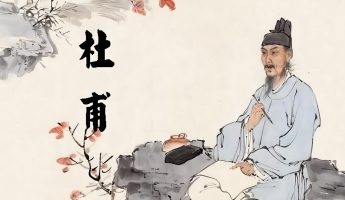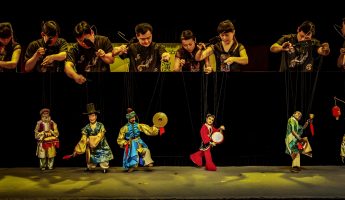Since ancient times, music has evolved with the development of human civilization, but in Chinese Confucianism, music has been endowed with a more profound connotation – it is a symbol of social order and moral education. The core of the “music” advocated by Confucianism lies in “virtue”, which is the core essence of its musical philosophy.
Confucianism firmly believes that music is not only a medium for expressing emotions and entertainment, but also a window for observing social trends and evaluating political gains and losses. The Book of Music states, “The way of sound is connected to politics.” Through music, one can gain insight into the turmoil of a country and the sorrow and music of its people. The “L ü shi Chunqiu” also points out that music can directly reflect the social style and the virtues of rulers, and is an important criterion for judging the rise and fall of a country.
In the view of Confucianism, music can be divided into different levels. Those elegant sounds that conform to the laws of heaven, can cultivate sentiments, and guide people to be good are regarded as “moral and elegant music”. For example, the national style in the Book of Songs is the essence of local folk songs, reflecting the simple folk customs and moral pursuit. On the contrary, music that is too wild and unrestrained is criticized as the “sound of national demise”, which goes against the doctrine of the mean and can easily lead people to lose their true nature.
In the Confucian education system, both ritual and music are emphasized, aiming to cultivate a noble character through both internal and external cultivation. Etiquette, regulating behavior from the outside; Happiness cultivates one’s character from within. As stated in the Book of Music, “To bring joy is to govern the heart.” Music, with its unique infectious power, can invisibly guide people towards goodness and is an important means of Confucian education for the people.
In history, holy kings often praised merit and educated the people by creating music movements, which are not only the crystallization of art, but also the embodiment of the spirit of the times. The collapse of rituals and music during the Spring and Autumn period reflected the decline of social morality and disorder at that time, which deeply concerned Confucianism.
With the changes of the times, although the Confucian music education thought once faded from the public eye, its essence is still inherited by some knowledgeable people. The rise of modern “music therapy” theory, although originating from Western science, coincides with Confucian music education, both emphasizing the healing effect of music on the soul.
In today’s society, Confucian music education is gradually returning to people’s vision, and using music to cultivate temperament and enhance cultivation has become a fashion. Whether it’s music appreciation classes on campus or background music playing in public places, they are all practicing the tradition of Confucian music education in different ways, allowing people to enjoy the beauty of music while also feeling the purification and sublimation of their souls.



